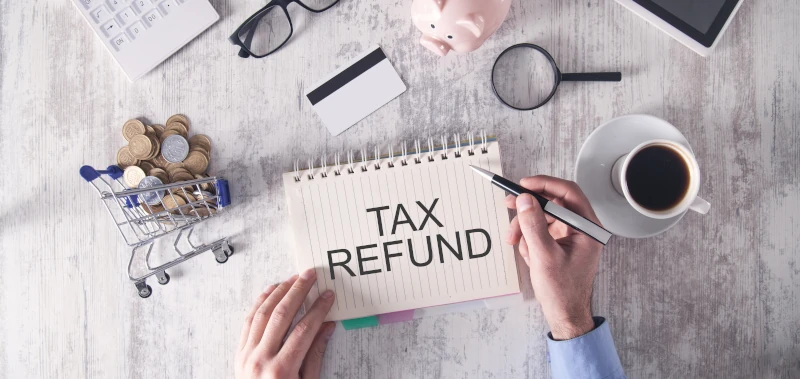7 Tax Deductions you can’t Claim on your Tax Return
When it comes to filing your tax return, many individuals are eager to maximise their deductions and reduce their taxable income. While there are numerous deductions available, it’s crucial to understand which expenses are not claimable to avoid any issues with the Australian Taxation Office (ATO). Below, we’ll explore seven common deductions that people often mistakenly try to claim but, unfortunately, cannot.
1. Private Health Insurance
Every tax season, health funds bombard the public with advertisements suggesting that signing up for private health insurance will help save on taxes. While this may sound enticing, the reality is that the benefits are not as widespread as the ads might imply.
To benefit from private health insurance when it comes to your tax return, your Medicare Levy Surcharge (MLS) income needs to be greater than $90,000 for singles or $180,000 for families. If your income falls below these thresholds, signing up for private hospital cover will not result in any tax savings.
If your income exceeds the limits, private hospital cover may save you from paying the Medicare Levy Surcharge (MLS), which ranges from 1% to 1.5% of your MLS income. The percentage you pay depends on your exact income level. The MLS is an additional tax that the government imposes on high-income earners who do not have private hospital insurance.
Your MLS income is calculated by adding your taxable income, reportable fringe benefits (as shown on your payment summary), total net investment losses, reportable superannuation contributions, exempt foreign employment income, and any portion of your spouse’s net income of a trust for which the trustee is taxed under section 98 of the Income Tax Assessment Act 1936, but that hasn’t been included in their taxable income.
In summary, while private health insurance can indeed save you from paying the MLS if your income exceeds certain limits, for those with lower income levels, no tax savings are available. It’s important to check your MLS income before deciding whether signing up for private cover is financially beneficial.
2. Laundry Costs
Many Australians believe that because they wear specific clothes to work, they can automatically claim the cost of laundering those clothes as a tax deduction. Unfortunately, this is not the case unless the clothes meet very specific criteria.
To claim laundry expenses, the clothes must be either:
- Protective clothing, such as hard hats, safety glasses, steel-capped boots, or high-visibility gear worn by construction workers or similar professions;
- A compulsory uniform, meaning it is distinctive to your employer and includes items like branded shirts or healthcare uniforms;
- Occupation-specific clothing, such as chef whites or a nurse’s uniform.
Clothing that doesn’t fit into one of these categories, including regular business attire or casual clothes worn to work, is not deductible. For example, retail workers cannot claim the cost of clothes they are required to wear, even if those clothes are purchased from their workplace.
When it comes to laundry, you can claim the cost of cleaning these eligible items, either by keeping detailed receipts or using the ATO’s reasonable basis for laundry expenses without receipts. The costs of cleaning regular work clothes, however, cannot be claimed.
3. Charity Donations When You Receive Something in Return
Donating to charity is a great way to support your community, and many people appreciate the bonus of being able to claim these donations as tax deductions. However, there are specific rules regarding when and how donations can be claimed.
Under ATO guidelines, you can only claim a tax deduction for donations of $2 or more made to a registered Deductible Gift Recipient (DGR). However, if you receive something in return for your donation, such as a ticket to a fundraising event, a meal, or a small gift, you cannot claim the full amount as a deduction.
For instance, if you donate $100 to a charity and receive a pen or keyring valued at $5, you can only claim a deduction of $95. The ATO emphasises that donations must be made freely, with no material benefit to the donor.
Additionally, donations made through crowdfunding platforms, like GoFundMe or Kickstarter, are not always tax-deductible. It’s important to check with the charity or platform to ensure your donation qualifies under ATO rules before claiming it on your tax return.
4. Work Clothes (Not Protective or Uniform)
One of the most common questions tax agents receive is about claiming the cost of work clothes. Specifically, can you claim the cost of purchasing clothing required by your employer, such as clothes from a fashion store where you work? The answer, in most cases, is no.
The ATO allows deductions for clothing that is either protective, part of a compulsory uniform, or occupation-specific. However, if you work in retail, hospitality, or a similar field, and are required to purchase specific clothing items from the store you work for, this is not deductible. Even if your employer insists that you wear these clothes, the ATO considers this to be an ordinary personal expense.
Business attire, such as suits, ties, or skirts, is also not deductible, even if your profession requires you to dress formally. The ATO views these as everyday clothes that can be worn outside of work, and they do not meet the eligibility criteria for a tax deduction.
To avoid any confusion, it’s essential to understand the distinction between everyday work attire and clothing that is eligible for deductions under ATO guidelines. If you’re uncertain about what can be claimed, it’s always best to consult with a tax professional.
5. Self-Education Expenses
Many Australians are eager to claim self-education expenses, particularly in today’s world, where continuing education is essential for career advancement. However, the ATO has strict rules about what qualifies as a deductible self-education expense.
Self-education expenses can be claimed if they directly relate to your current employment. For example, if you’re a nurse attending a course to update your skills, those education expenses can be claimed. Similarly, a lawyer taking a course in advanced legal practice can claim the cost.
On the other hand, if the education is not directly related to your current employment or is aimed at getting a new job, it’s not deductible. For instance, an accountant studying to become a massage therapist cannot claim those expenses, as they are not relevant to their current job.
Furthermore, not all expenses associated with self-education are deductible. Travel costs to attend a course may be deductible, but only if the course itself qualifies for a deduction. For some education-related expenses, such as accommodation or meals, strict rules apply, and they may not be deductible at all.
6. Phone Plans
Many people use their mobile phones for both personal and work-related calls, and it’s common to want to claim phone expenses as a deduction. However, you cannot claim the full cost of your phone plan unless the phone is used exclusively for business purposes.
To determine how much you can claim, the ATO requires you to keep a log of your phone usage over a representative period, such as one month. By calculating the percentage of your phone use that is for work, you can then apply this percentage to your overall phone expenses and claim a pro-rata amount.
If you have a separate phone or plan solely for work, then the entire cost may be deductible. However, for most people, this isn’t the case, and you can only claim the portion that relates to work use.
7. Airfares for Fly-in Fly-out Workers
Fly-in fly-out (FIFO) workers are a significant part of Australia’s workforce, particularly in the mining and construction industries. While FIFO workers incur substantial travel expenses to reach remote work sites, these travel costs are generally not deductible.
According to the ATO, travel from your home to the place of departure designated by your employer is considered private travel and is therefore not claimable. This applies even when your work arrangements require you to travel significant distances regularly.
It’s essential to remember that travelling to and from work, regardless of how far it is, is a personal expense. FIFO workers cannot claim deductions for these travel costs unless there are very specific exceptions.
Conclusion
These are some of the most common tax deductions that taxpayers mistakenly attempt to claim. Understanding what you can and cannot claim is essential to avoiding issues with the ATO and ensuring that you remain compliant with tax laws. As always, if you’re unsure about a deduction, consult a registered tax agent or accountant to get professional advice.
Once you’ve lodged your return and your refund is on its way, consider reading my blog post on 5 Green Ideas to Spend Your Tax Refund.




Yes i agree with all of daves comment. Tax is confusing i am in that large boat. Good job geoff another dave.
Interesting and informative article! I think this is an important topic because many people do these things and thought that they can claim their tax afterwards. This should be disseminated and thanks for this info Geoff!
Another interesting one. And your website person is doing a good job easy to use. And worth a look at . The mls comment at the top had me thinking whats mls but read on for the explanation .I like a simple explanation and the whole article had that. I am certainly in a large boat of people who see accountants because we can’t work it out ourselves. Regards dave